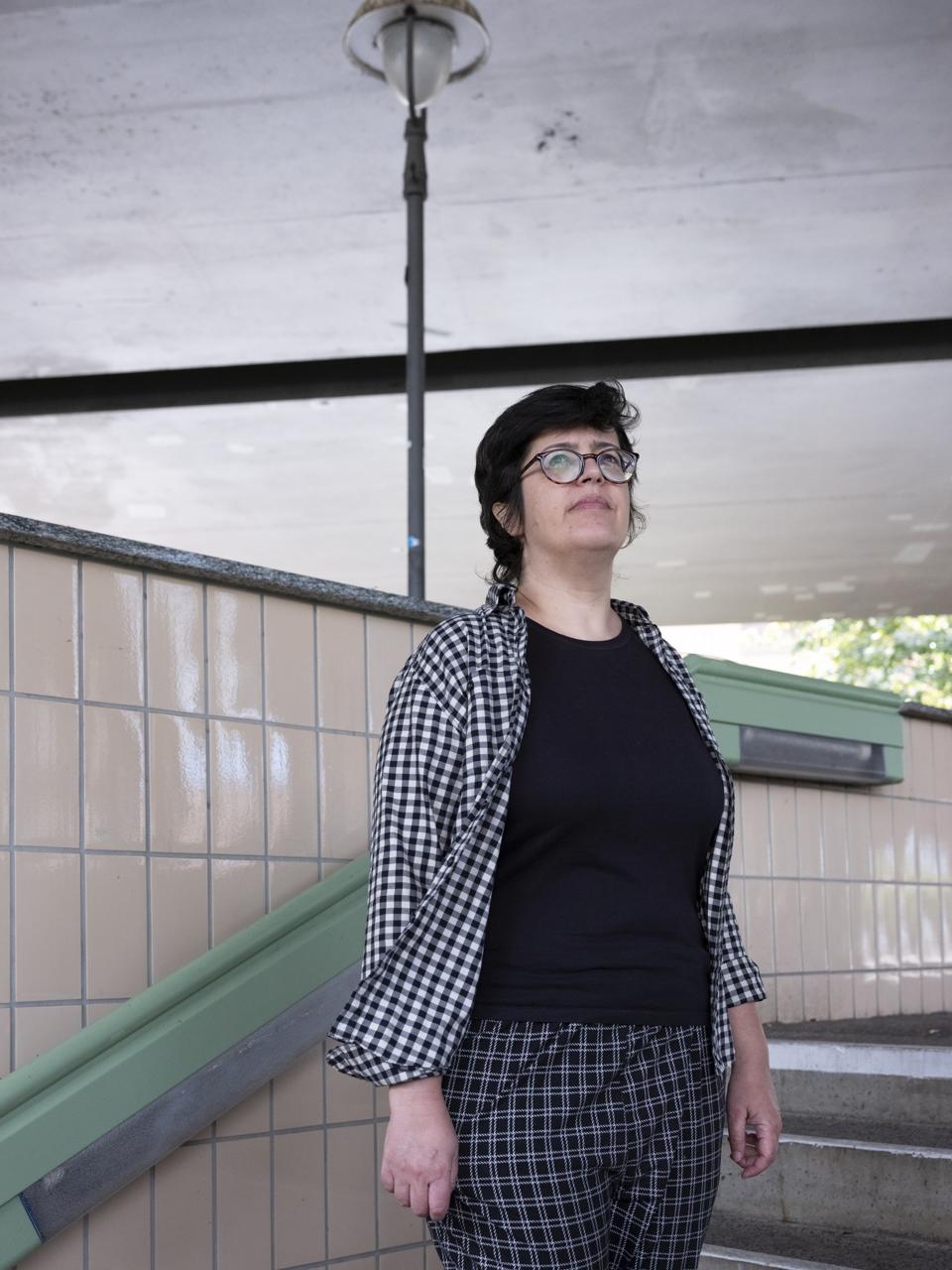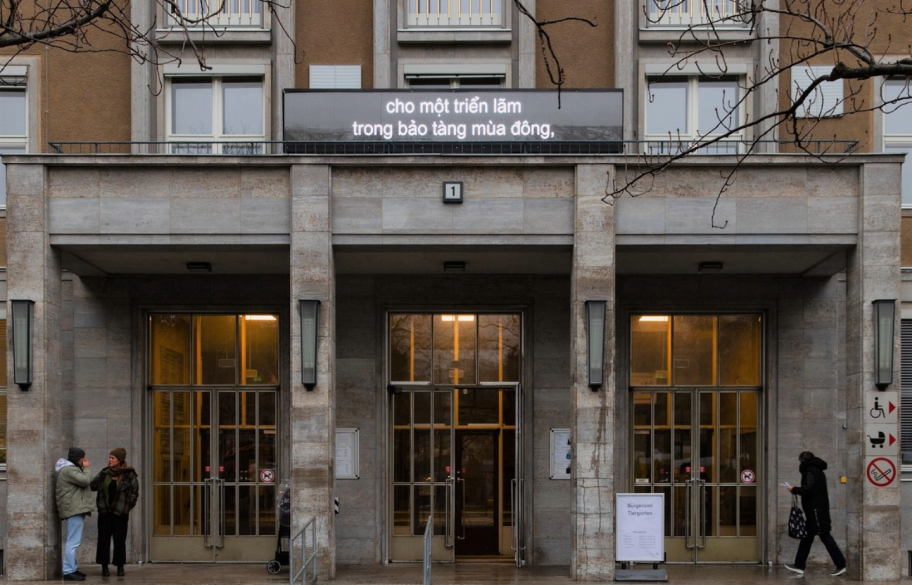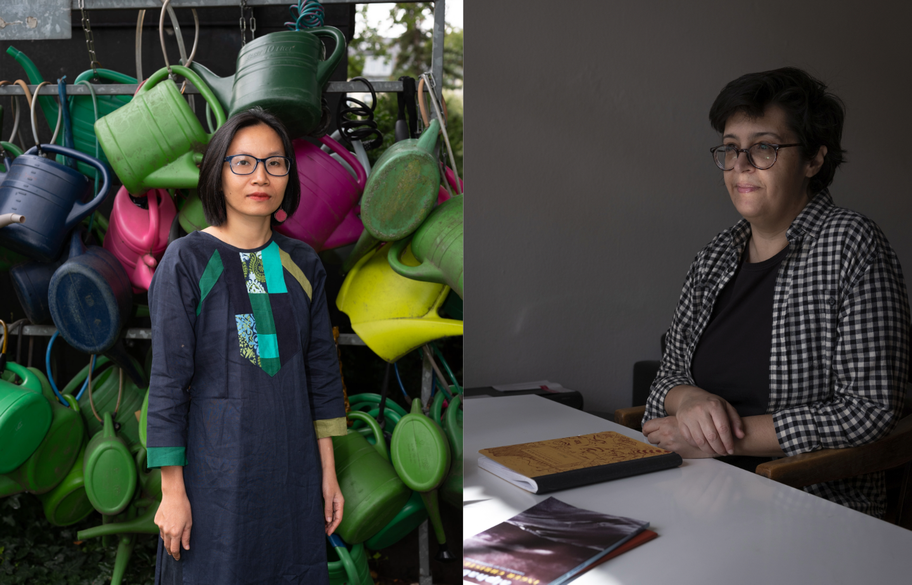Brazil, Literature, 2020
Angélica
Freitas

Angélica Freitas was born on 8 April 1973 in Pelotas, one of the southernmost cities in Brazil’s southernmost state of Rio Grande do Sul. To the foreign reader better acquainted with the cultural atmosphere of cities such as Rio de Janeiro and Salvador, the above information might seem rather neutral or cursory, like details read off a passport: age, place of birth. To the Brazilian reader, however, this information invariably evokes very particular geographic and sociocultural spaces, as well as a specific historical period.
Sharing a border with Uruguay and Argentina, the state of Rio Grande do Sul also shares customs, oral and musical traditions, and a certain quality of spirit with regions of its neighboring countries. A life tending cattle, the gaucho and his maté. And, of course, the stories, which are gradually fading, about the bloody wars that shook the Southern Cone in the 19th century: the battle for Uruguayan independence, the Brazilian rebellion known as the Farroupilha (The Ragamuffin War), or the Paraguayan War, the bloodiest among them, waged by Paraguay against Brazil, Uruguay, and Argentina. All of this lent an epic quality to the great literature of those countries, as seen in El gaucho Martín Fierro by Argentine writer José Hernández, or Time and The Wind by Brazilian writer Érico Veríssimo—the modern novelist who is most strongly associated with Angélica Freitas’s native state—one of whose main characters, Captain Rodrigo, embodies the manliness evoked by “official” depictions of the region. A land of tough, virile men: men on horseback, lassoing cattle, sticking fast to the patriarchal traditions brought over from Italy, Germany, Poland. It is important to keep these things in mind in order to comprehend part of the political impetus which drives the poetry of Angélica Freitas.
In her poem às vezes nos reveses (in times of trouble), we notice, however, how the satirical and lyrical merge into and reach beyond the quotidian-themed poetry most commonly produced in Brazil:
in times of trouble
in times of trouble
i think of returning to glorious
England
but even english women bleed
each month
and tell her royal highness to
fuck off.
i say hang in there with your head up high
take the wheel with both hands
bronze your skin
under the tropical sun and maybe
you’ll learn to be happy
like pigeons in the town square
flying high
they cleverly
make us targets
for their white droppings
in times of trouble
(translated by Hilary Kaplan)
In a poem brimming with both humor and sarcasm, the poet rhymes “england” with “sangram” (bleed), and “meses” (months) with “highness,” and moves effortlessly and effectively between the oral and literary registers. Another poem, Sereia a sério (Mermaid in earnest), reads:
the cruelest part was that as beautiful
as much as her features flaunted
a genetic pedigree of bonafide aristocracy
and her hands deftly wielded
needlework and roast chickens
and her tresses attested
to tortoiseshell combs and splendid grooming
the fascination would always remain
with the mermaid’s tail.
(…)
(translated by Hilary Kaplan)
But a particular historical period was also mentioned in the introductory line: in 1973, the year the poet was born, Marshal Emiliano Médici ruled Brazil with an iron fist. He was the third in a series of military junta presidents who kept the country under political and artistic repression from 1964 to 1985. In the alleged peacefulness of a tropical country known for its image of carnivalesque merriment, Angélica Freitas would grow up and later study in Brazil’s most temperate region, a region which nonetheless shared a dark (and now almost forgotten) history of repression: the massacres of indigenous peoples, Africans who rebelled against slavery, numerous popular revolts which sought to improve the lives of the country’s underprivileged citizens. And, as if political and artistic repression weren’t enough, there was also a constant attempt to gain control over the great majority of the female population in Brazil—a sexist and patriarchal country, the largest Catholic nation in the world, whose violence against white, black, and indigenous women has always been as brutal as it is commonplace. A violence that can be felt and seen, but which can’t be heard over the din of an entire country that sings “Girl from Ipanema” by poet Vinicius de Moraes, and which thus effaces its bloody past and equally bloody present from its history. A country that consciously choses to sell itself as “a paradise,” a paradise which, for the most part, manifests itself only to men, e.g. the men who profit from and engage in sex tourism in Brazil. The issue is addressed incisively in one of Freitas’s most often cited poems, included in um útero é do tamanho de um punho (A uterus is the size of a fist, 2012):
a sober woman
is a clean woman
an inebriated woman
is a dirty woman
among the animals of this world
those with or without claws or fingernails
it is the inebriated, dirty woman
whose parts are used for everything
the ears the muzzle
the belly the knees
even the corkscrew tail
the pinkies and the toes
(translated by Pedro Vainer)
Angélica Freitas’s poetry is set against and derives from this very backdrop, beginning with the 2007 Rilke Shake book of poems; flowing with redoubled power in 2012 with A uterus is the size of a fist, and in her upcoming book, canções de atormentar (Songs of torment), set to be released by Companhia das Letras, one of the foremost publishing houses in Brazil. These titles allow us to comprehend the traditions in which the poetry of Angelica Freitas is steeped. Firstly, satirical poetry, which, in a sense, inaugurates lusophone literature in the figure of Gregório de Matos in the seventeenth century, Tomás Antônio Gonzaga in the eighteenth century, Sapateiro Silva in the nineteenth century, or Oswald de Andrade in the twentieth century. For the past few years the author has been developing a new book in partnership with her wife, singer and composer Juliana Perdigão, the title of which alludes to yet another Portuguese-language tradition: the “cantigas de maldizer” [songs of scorn and mockery] sung by medieval troubadours. Her work therefore stems from a satirical tradition which is critical of the official hypocrisies embedded in the communities from which said tradition arises.
Only male authors have been mentioned up to now. This fact is the central or most-discussed aspect of Angelica Freitas’s work: the emergence of the female body in poetry. In twentieth century Brazilian poetry, her precursors were: Francisca Júlia, Cecília Meireles, Henriqueta Lisboa. But it was only in the 1970s, in Brazil as well as in Portugal, that writers like Ana Cristina Cesar and Maria Velho da Costa would write about the political struggles of women who were taking to the streets in protest. Today, a number of Brazilian female writers point to um útero é do tamanho de um punho as constituting a powerful new movement towards satirical poetry in the twenty-first century: critical, potent, aiming to unmask through words. In the poet’s own words, she considers herself to be among those “who’d rather turn to salt,” in reference to Lot’s anonymous wife.
Text: Ricardo Domeneck
Translation: Pedro Vainer
Rilke Shake
Cosac Naify, São Paulo, 2007
Rilke Shake
Wiesbaden, luxbooks, 2011 (Ü: Odile Kennel)
Rilke Shake
Phoneme Media, Los Angeles, 2015 (Transl.: Hilary Kaplan)
VERSSchmuggel/Contrabando de Versos
Das Wunderhorn, Heidelberg, 2009
Editora 34, São Paulo und Lissabon, 2009
um útero é do tamanho de um punho
Cosac Naify, São Paulo, 2012
Der Uterus ist groß wie eine Faust
Elif Verlag, Nettetal, 2020 (Ü: Odile Kennel)
canções de atormentar
Companhia das Letras, São Paulo, 2020





